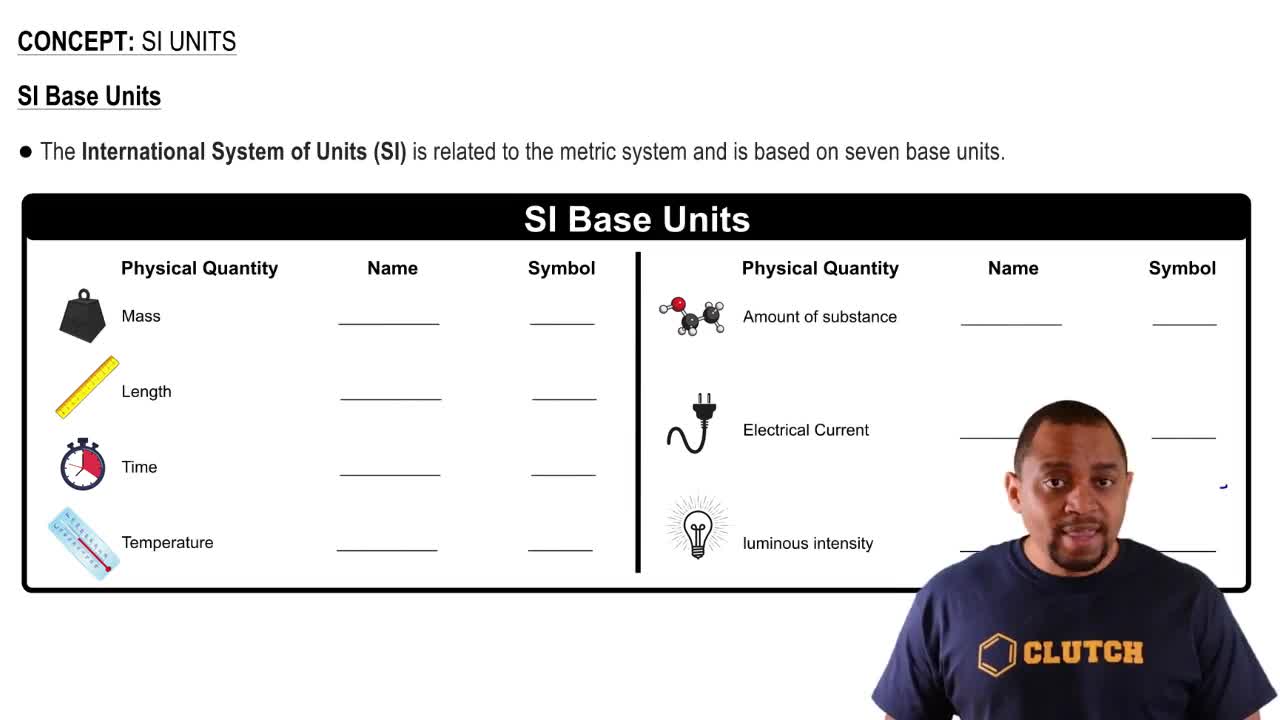Convert between energy units. c. 4.99 × 103 kJ to kWh
Ch.6 - Thermochemistry

Chapter 6, Problem 36a,b
A particular frost-free refrigerator uses about 745 kWh of electrical energy per year. Express this amount of energy in each unit. a. J b. kJ
 Verified step by step guidance
Verified step by step guidance1
Step 1: Understand the relationship between kilowatt-hours (kWh) and joules (J). 1 kWh is equivalent to 3.6 million joules (3.6 x 10^6 J).
Step 2: To convert the energy usage from kWh to joules, multiply the given energy in kWh by the conversion factor (3.6 x 10^6 J/kWh).
Step 3: Calculate the energy in joules using the formula: Energy (J) = Energy (kWh) x 3.6 x 10^6 J/kWh.
Step 4: To convert joules to kilojoules (kJ), use the conversion factor where 1 kJ = 1000 J.
Step 5: Calculate the energy in kilojoules by dividing the energy in joules by 1000.
Key Concepts
Here are the essential concepts you must grasp in order to answer the question correctly.
Energy Units
Energy can be measured in various units, with the most common being joules (J) and kilowatt-hours (kWh). One kilowatt-hour is defined as the energy consumed by a power of one kilowatt running for one hour, which is equivalent to 3.6 million joules (3.6 x 10^6 J). Understanding these units is essential for converting energy values.
Recommended video:
Guided course

SI Units
Conversion Factors
To convert between different units of energy, specific conversion factors are used. For instance, to convert kWh to joules, you multiply the number of kWh by 3.6 x 10^6. Similarly, to convert joules to kilojoules (kJ), you divide the number of joules by 1,000, since 1 kJ equals 1,000 J. Mastery of these conversion factors is crucial for accurate calculations.
Recommended video:
Guided course

Conversion Factors
Practical Applications of Energy Measurement
Understanding energy consumption in practical terms, such as in household appliances, helps in evaluating efficiency and cost. For example, knowing how much energy a refrigerator uses in kWh allows consumers to estimate their electricity bills and make informed decisions about energy-efficient appliances. This concept ties together the theoretical understanding of energy with real-world implications.
Recommended video:
Guided course

Units of Radiation Measurement
Related Practice
Textbook Question
652
views
2
rank
Textbook Question
Suppose that a person eats 2387 Calories per day. Convert this amount of energy into each unit. a. J b. kJ c. kWh
972
views
Textbook Question
A particular frost-free refrigerator uses about 745 kWh of electrical energy per year. Express this amount of energy in each unit. c. Cal
755
views
Textbook Question
Which statement is true of the internal energy of a system and its surroundings during an energy exchange with a negative ΔEsys? a. The internal energy of the system increases and the internal energy of the surroundings decreases. b. The internal energy of both the system and the surroundings increases. c. The internal energy of both the system and the surroundings decreases. d. The internal energy of the system decreases and the internal energy of the surroundings increases.
2278
views
1
comments
